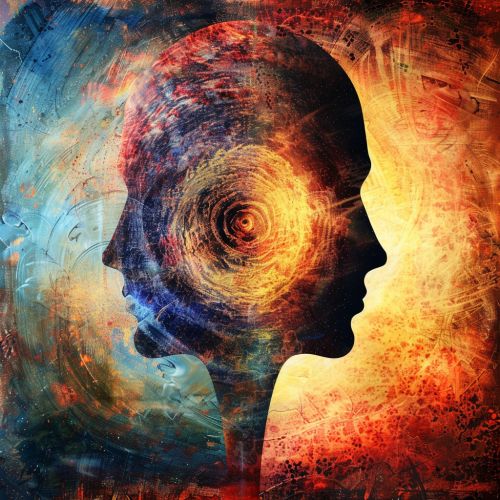Ego (psychoanalysis)
Definition and Origin
The term Ego in psychoanalysis refers to one of the three components of the psyche that, according to Freud's structural model, functions as the organized conscious mediator between the person and reality. It is primarily responsible for perception, cognition, and the regulation of defense mechanisms.
The concept of the Ego was first introduced by Freud in his topographical model, a theory that the mind is divided into three regions: conscious, preconscious, and unconscious. In this model, the Ego was associated with consciousness and was responsible for controlling the demands of the Id and the Superego.


Freud's Structural Model
In Freud's structural model, the Ego is the component of the psyche that deals with the demands of reality. It operates according to the reality principle, which seeks to satisfy the Id's desires in a realistic and socially appropriate manner. The Ego employs defense mechanisms to manage the conflict between the Id and the Superego.
The Ego is also responsible for testing reality, understanding the external world, and interpreting it in a way that is both realistic and satisfying to the Id and the Superego. The Ego's main concern is to establish a balance between primitive drives, morals, and reality while satisfying the primitive desires of the Id in a socially acceptable way.
Defense Mechanisms
The Ego employs various defense mechanisms to manage the conflict between the Id's primitive desires and the Superego's moralistic goals. These defense mechanisms are unconscious strategies that the Ego uses to reduce anxiety by distorting reality. Some of the most common defense mechanisms include repression, projection, displacement, rationalization, and sublimation.
Ego Strength
Ego strength refers to the Ego's ability to function despite these competing forces. A person with good Ego strength is able to effectively manage these pressures, while a person with poor Ego strength becomes overwhelmed by the demands of the Id and Superego, leading to maladaptive behaviors and psychological disorders.
Ego Psychology
Ego psychology is a school of psychoanalysis that focuses on the Ego's cognitive and perceptual functions in the interpretation and adaptation of reality. Ego psychologists seek to understand how the Ego mediates between the Id and the Superego and how it manages to maintain a sense of self despite these conflicting demands.
